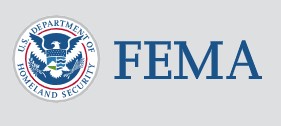
Why Relocate to Alternate Work Spaces?
Unforeseen events, such as natural disasters, building closures, or public health emergencies, can disrupt our campus operations. To mitigate these disruptions, we must develop plans that enable us to relocate to alternate work spaces. Here are some key considerations:
- Risk Assessment
- Identify potential threats and vulnerabilities that could impact your department/units operations. Assess the likelihood and potential impact of these events.
- Alternate Work Space Operations
- Explore available alternate work locations that can serve as temporary workspaces for faculty and staff. Consider agreements with partner departments.
- Communication Plans
- Develop a clear communication strategy to inform employees about the relocation process, including instructions for accessing alternate workspaces and necessary resources.
- Technology Infrastructure
- Ensure that entities have access to the necessary technology and tools needed to work remotely. This includes secure remote access to systems and data.
- Training and Support
- Offer training sessions on remote work best practices and provide support for employees to set up with remote work environments effectively.
- Data Security
- Emphasize data security and privacy measures, especially when handling sensitive information off-campus and off-network.
The Importance of Remote Work Preparedness
The ability to transition to remote work is a crucial component of our Mission Continuity strategy. Whether facing a pandemic, inclement weather, or other emergencies, we must ensure that faculty and staff can maintain productivity while working remotely. Key considerations for remote work readiness include:
Remember, the effectiveness of our Mission Continuity plans depends on thorough planning, clear communication, and regular testing. Periodically review and update your plans to account for changes in technology, personnel, and operational needs.
By proactively addressing the relocation to alternate work spaces and transition to remote work, we can continue to provide the highest level of service to our students, faculty, and staff, regardless of the circumstances. Together, we can ensure that our University remains adaptable, resilient, and prepared for the future.
Resources for Plan Administrators



